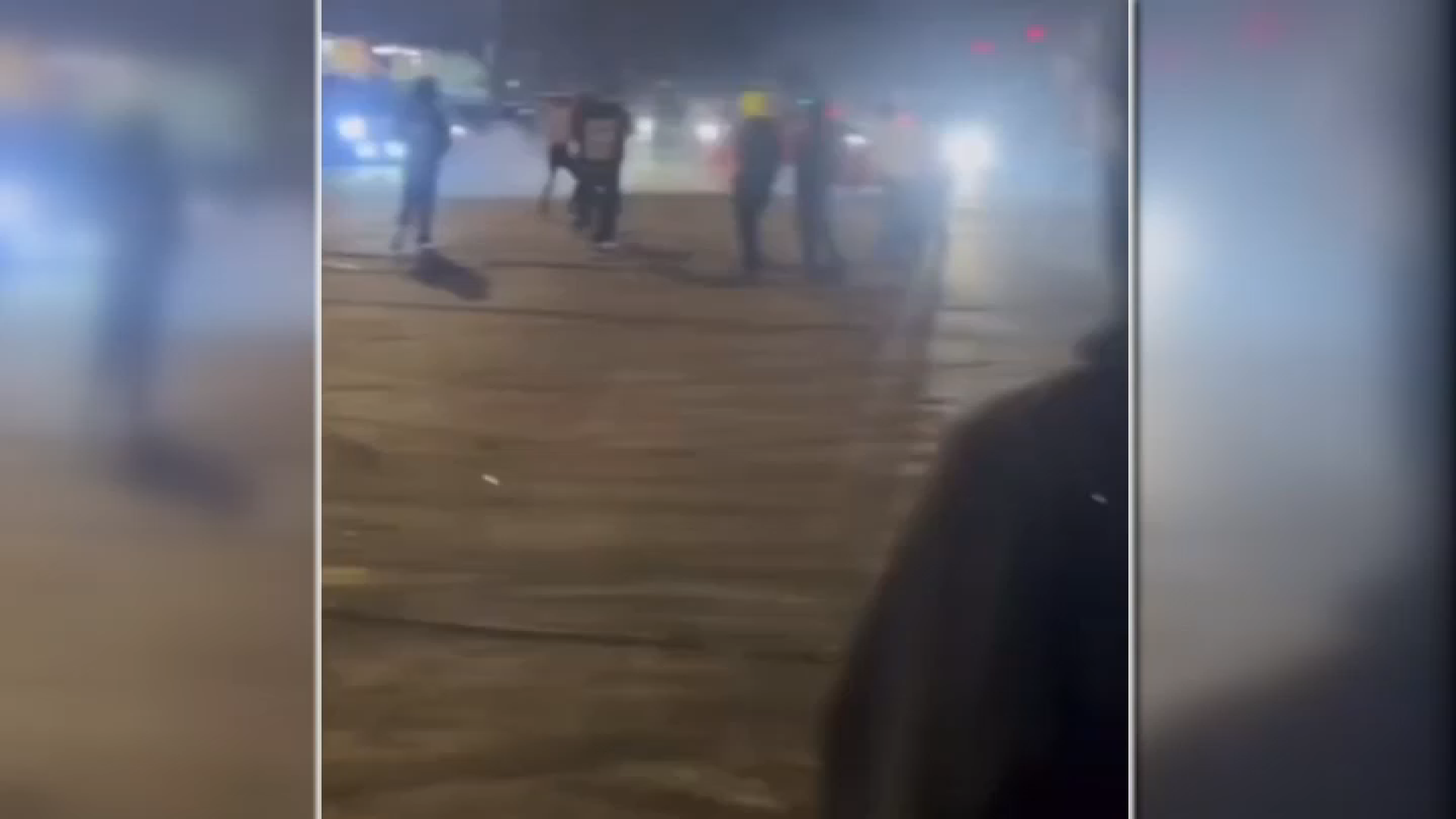Under a federal judge's threat of suspending anti- camping ordinances countywide, south Orange County officials pledged Tuesday to meet later this month to brainstorm a location for an emergency shelter for the homeless.
U.S. District Judge David O. Carter has been presiding over an unorthodox settlement between homeless advocates and the county of Orange since last month, when hundreds of transients along the Santa Ana riverbed were evacuated from encampments and given 30-day motel vouchers while officials considered other housing arrangements.
But that settlement has threatened to fall apart as opponents of temporary tent shelters rail against relocating transients to various cities, particularly in the southern part of the county.
At a status conference this morning, Carter pressed officials to come up with some sort of "regional" approach to temporary shelters so that northern cities such as Santa Ana, Anaheim, Fullerton and Orange no longer have to carry the full burden of providing services to the county's homeless.
The alternative is a temporary restraining order that would bar the county and Santa Ana from enforcing anti-camping ordinances. That's where the judge's legal authority extends -- for now. If Santa Ana officials carry through on a threat to file a cross complaint against the rest of the county's cities, then Carter's reach could extend throughout the county.
But Carter's main power is suspending anti-camping ordinances in municipalities where the city does not provide enough or adequate shelter for the homeless. Carter noted he has no power to "pick a site" for emergency shelter beds.
If Carter signed off on the temporary restraining order, then the transients could not be arrested, but they would also not get any services. Attorney Brooke Weitzman, who represents the area's homeless in the litigation, said, "Now the cities really have no choice ... We hope the next step is to get emergency shelters online."
News
Top news of the day
Weitzman told reporters after the three-hour hearing that she was "hopeful" a solution would come soon to head off a TRO.
"Once south county (cities) commit to a location, the county can move quickly" to erect an emergency shelter, Weitzman said. "The county has the infrastructure to do that. The hold-up here is the land."
Last month, the county Board of Supervisors voted to consider erecting tents -- technically what is known as sprung structures -- in Irvine, Huntington Beach and Laguna Niguel. That prompted howls of protest and lawsuit threats from the cities, forcing the board to back down.
Since then, divisions on the board have erupted as Chairman Andrew Do and Vice Chairman Shawn Nelson accused Supervisor Todd Spitzer, who is running for district attorney, of "fear mongering" in the three cities against the emergency shelters. When Do called a special meeting Monday, only he and Nelson showed up, so there was no quorum.
Among the homeless moved off of the riverbed, there are many "success stories" of longtime transients finding jobs at places such as Starbucks and elsewhere, Carter said. Now the focus has turned to clearing out the 150 to 200 transients in the Plaza of the Flags area next to the Central Justice Center courthouse in Santa Ana.
Carter said the next significant "download" of transients will happen on Saturday, when the armories in Santa Ana and Fullerton, which provide overnight shelter for the homeless, close for the season. That could mean another 400 or so homeless on the streets, the judge said.
Carter said money is no excuse, though several mayors from Orange County cities complained they lack the funding to provide the housing. Do committed $90 million of funding for homeless shelters, and Carter said a state audit showed the state has $2.5 billion available in unspent funding to help mentally ill transients.
"Unfortunately, Orange County is the primary chipmunker," Carter said.
The judge said he wished to avoid issuing a restraining order on the anti-camping ordinances because it would leave transients without any services. He said he considered the efforts in his courtroom to be a "big tent" where leaders throughout the county could solve the issue under a "coalition of goodness."
Carter praised county officials for "humanely" getting the hundreds of transients off of the riverbed and into some level of services.
Do acknowledged that the county was "guilty" of not doing enough to combat homelessness over the years, but he pointed out how he cleared the litigious logjam last month when he came up with the idea of providing 30-day motel vouchers for the riverbed transients.
"We own our failure at the county," Do said. "We could have done more over the years, but where do we go from here? Nobody wants a solution to mental health or homelessness in their city."
Irvine Mayor Don Wagner told the judge that his city did not find the site the county planned to use in his city near the Great Park suitable because it has no running water or sewer facilities, but did not object to any shelter in Irvine. The site near the Great Park, county officials have noted, was zoned by Irvine for a homeless shelter.
Wagner said the city was negotiating with The Irvine Co. on a site that officials deem more suitable for an emergency shelter.
"Irvine has a location and stands ready to help," Wagner said.
Carter said that was fine, but the problem over the years has been that officials drop off the homeless in Santa Ana for the services provided there, but they don't find their way back to the south county cities where they were picked up. Carter said that's one of the ways the homeless are "dumped" in the northern cities.
The judge said it was necessary to find spots in western and southern Orange County so the homeless there can remain in the areas where they had been staying.
Wagner said officials in the southern cities had been engaged in a dialogue about the issue and wanted to help. That prompted Carter to press him for a commitment on when locations could be found for temporary shelters.
"If I don't have that kind of commitment ... then it's meaningless. It's just going through the process of committees and discussions and then I may as well step in now" with a restraining order, Carter told Wagner.
Wagner consulted with some of his colleagues and said an organization of mayors, which has a scheduled meeting on April 19, will clear the agenda and only discuss possible sites for temporary shelters. Until that meeting, the city leaders will huddle up among themselves and research potential sites.
Meanwhile, efforts to clear the transients out of the Santa Ana civic center area will continue, relying on voluntary compliance as social workers present options to the homeless. It is unclear how the county will provide shelter for the transients emerging from the armories as officials say they are at or near capacity for its county-run shelters.



